
The Pristine Tongatapu Coastline: A Paradise in Tonga
The Tongatapu Coastline in Tonga is a stunning and serene destination that offers a perfect blend of natural beauty and cultural richness. With its crystal-clear waters, white sandy beaches, and vibrant coral reefs, it is an ideal spot for both relaxation and adventure. The coastline is dotted with charming villages where you can experience the warm hospitality of the Tongan people and learn about their fascinating traditions and way of life. The coastline boasts a variety of attractions, including the Mapu a Vaea Blowholes, where the powerful force of the ocean creates spectacular water spouts, and the ancient Ha'amonga 'a Maui Trilithon, a mysterious stone structure often referred to as the 'Stonehenge of the Pacific'. For nature lovers, the coastline offers excellent opportunities for snorkeling, diving, and whale watching, especially during the migration season when humpback whales visit the warm waters around Tongatapu. Whether you are looking to unwind on a secluded beach, explore the underwater wonders, or immerse yourself in the local culture, the Tongatapu Coastline has something for everyone. It is a destination that promises unforgettable experiences and a chance to connect with the unspoiled beauty of the South Pacific.
Local tips in Tongatapu Coastline
- Visit the Mapu a Vaea Blowholes during high tide for the best views.
- Rent a bicycle to explore the coastline at your own pace.
- Try the local delicacy, 'Ota ika', a traditional Tongan raw fish salad.
- Bring reef-safe sunscreen to protect the coral reefs when swimming or snorkeling.
- Plan your trip between July and October for the best whale-watching opportunities.
The Pristine Tongatapu Coastline: A Paradise in Tonga
The Tongatapu Coastline in Tonga is a stunning and serene destination that offers a perfect blend of natural beauty and cultural richness. With its crystal-clear waters, white sandy beaches, and vibrant coral reefs, it is an ideal spot for both relaxation and adventure. The coastline is dotted with charming villages where you can experience the warm hospitality of the Tongan people and learn about their fascinating traditions and way of life. The coastline boasts a variety of attractions, including the Mapu a Vaea Blowholes, where the powerful force of the ocean creates spectacular water spouts, and the ancient Ha'amonga 'a Maui Trilithon, a mysterious stone structure often referred to as the 'Stonehenge of the Pacific'. For nature lovers, the coastline offers excellent opportunities for snorkeling, diving, and whale watching, especially during the migration season when humpback whales visit the warm waters around Tongatapu. Whether you are looking to unwind on a secluded beach, explore the underwater wonders, or immerse yourself in the local culture, the Tongatapu Coastline has something for everyone. It is a destination that promises unforgettable experiences and a chance to connect with the unspoiled beauty of the South Pacific.
When is the best time to go to Tongatapu Coastline?
Iconic landmarks you can’t miss
Mapu'a Vaea Blowholes
Experience the breathtaking power of nature at Mapu'a Vaea Blowholes, a stunning coastal attraction in Houma, Tonga, showcasing spectacular geysers and breathtaking views.
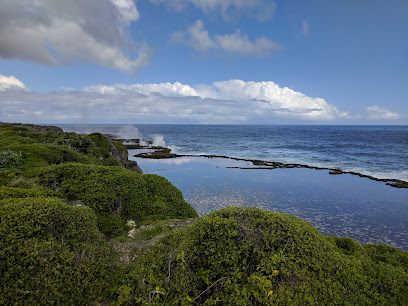
Tongatapu
Explore Tongatapu, Tonga's main island, where stunning beaches, rich culture, and fascinating history await your discovery in paradise.
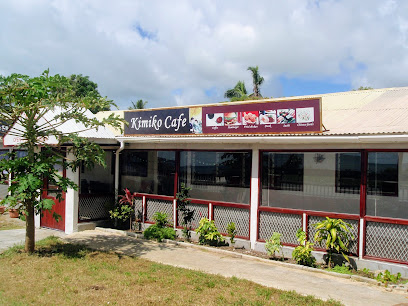
Little Italy Hotel
Discover the heart of Nuku'alofa at Little Italy Hotel, where comfort meets culinary excellence in a vibrant locale.

Royal Palace of Tonga
Explore the Royal Palace of Tonga, a historic landmark showcasing the heritage and royal traditions of the Tongan monarchy in the heart of Nuku'alofa.
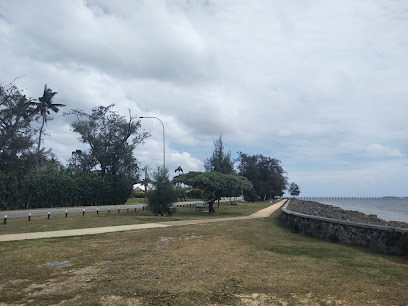
Anahulu Cave
Discover the stunning Anahulu Cave in Haveluliku, Tonga: a tranquil haven of crystal-clear waters and rich cultural heritage.
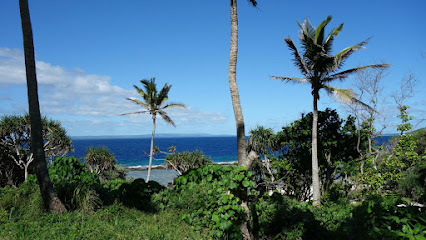
Royal Tombs
Discover the Royal Tombs of Tonga, a historical landmark that unveils the rich heritage of the Tongan monarchy amidst serene landscapes.
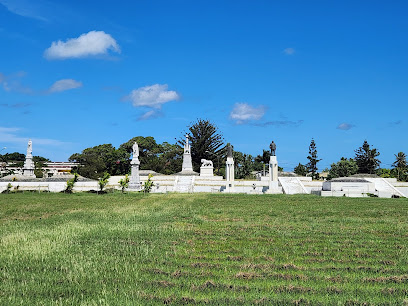
Ancient Tonga
Explore the rich history and cultural heritage of Tonga at Ancient Tonga, a captivating tourist attraction in Nuku'alofa.
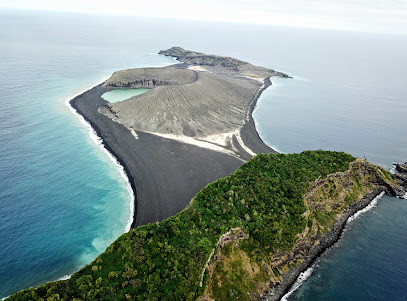
'Oholei Beach Resort
Experience the ultimate tropical getaway at 'Oholei Beach Resort, where luxury meets the natural beauty of Tonga’s stunning beaches.
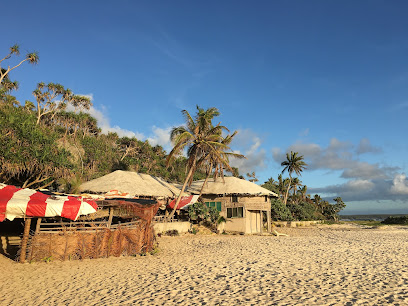
Ha'amonga 'a Maui Trilithon
Explore Ha'amonga 'a Maui Trilithon, Tonga's ancient stone structure, a symbol of rich cultural heritage and a remarkable historical landmark.
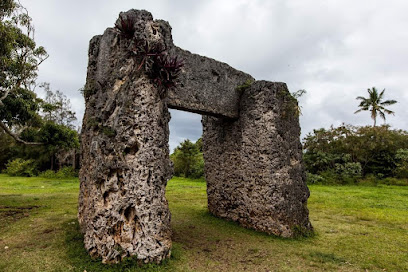
3 Headed Coconut
Explore the unique beauty of the 3 Headed Coconut in Matahau, a natural wonder that embodies Tongan culture and resilience amidst a tropical paradise.
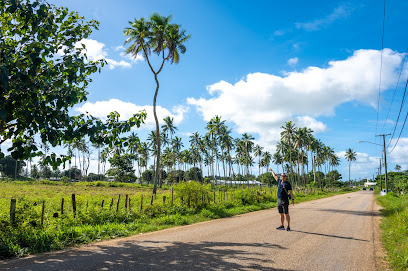
Nuku'alofa Tonga Temple
Explore the Nuku'alofa Tonga Temple, a serene sanctuary in Liahona, offering tranquility and rich cultural insights for all visitors.
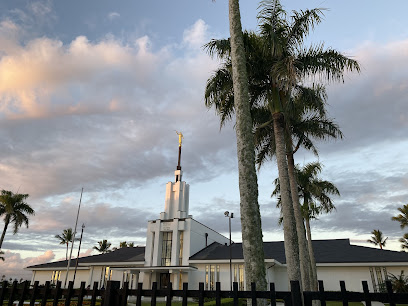
Vakaloa Beach Resort
Experience the tranquility of Vakaloa Beach Resort in Kanokupolu, Tonga - a perfect escape for relaxation and adventure amidst stunning ocean views.
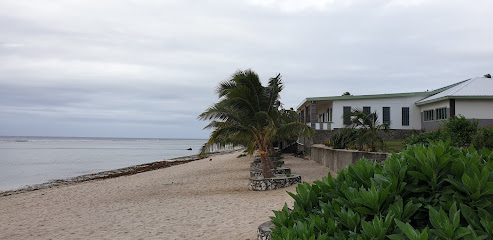
Winnies Bed & Breakfast
Experience authentic Tongan hospitality at Winnies Bed & Breakfast, your cozy retreat in Nuku'alofa, surrounded by natural beauty and local charm.

Tonga High School
Explore Tonga High School, a historic institution in Nuku'alofa, where education and Tongan culture converge in a picturesque setting.
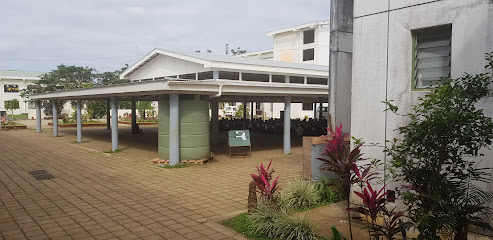
House of Tonga
Discover the best of Tonga at House of Tonga, where hospitality meets adventure in the heart of Nuku'alofa.

Essential places to dine
Coffee Post
Discover Coffee Post in Nuku'alofa - where authentic Tongan coffee meets warm hospitality in a cozy café setting.
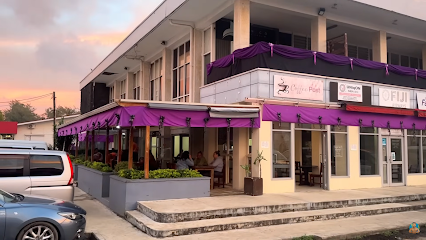
Little Italy Hotel
Experience authentic Italian cuisine and cozy accommodations at Little Italy Hotel in Nuku'alofa, Tonga – your gateway to culinary delight!

Friends Cafe
Discover the heartwarming flavors of Tonga at Friends Cafe in Nuku'alofa, where every dish tells a story.
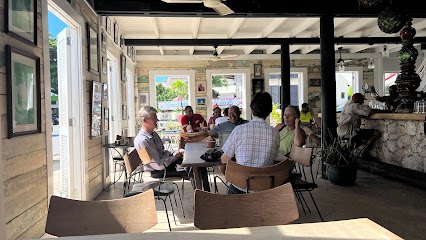
Cafe Escape
Discover authentic Tongan flavors at Café Escape in Nuku'alofa – where every sip of coffee and bite tells a story.
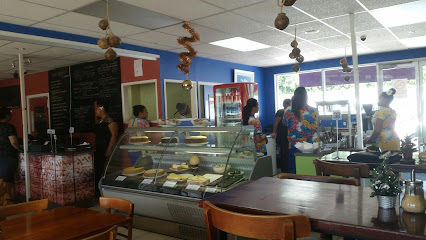
Billfish Bar and Restaurant
Discover the essence of Tongan cuisine at Billfish Bar and Restaurant – where fresh seafood meets vibrant island hospitality.
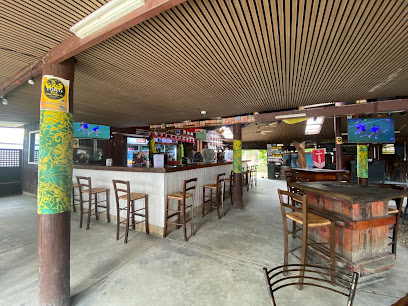
Chef Zero Restaurant
Experience authentic Tongan cuisine at Chef Zero Restaurant in Nuku'alofa - where every dish tells a story.
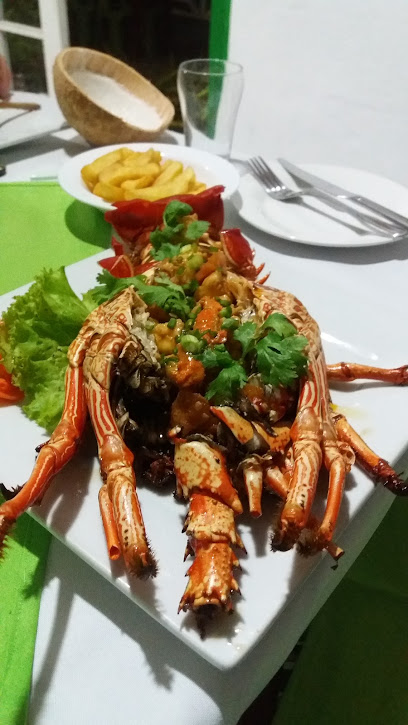
The TOP Restaurant and Lounge
Experience exquisite dining at The TOP Restaurant and Lounge in Nuku'alofa, where local flavors meet stunning ocean views.
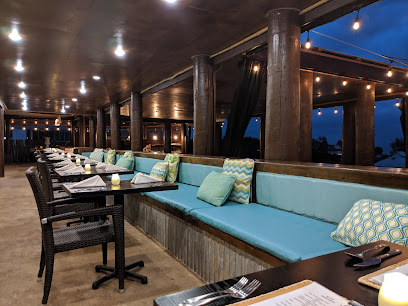
Mum's Cafe Nukualofa
Experience authentic Tongan flavors at Mum's Cafe in Nuku'alofa - where every meal feels like home.
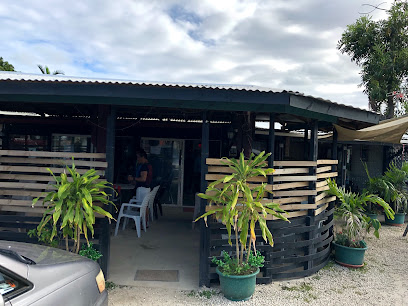
Young’s Kitchen
Experience the authentic flavors of Tonga at Young's Kitchen in Nuku'alofa, where traditional cuisine meets warm hospitality.
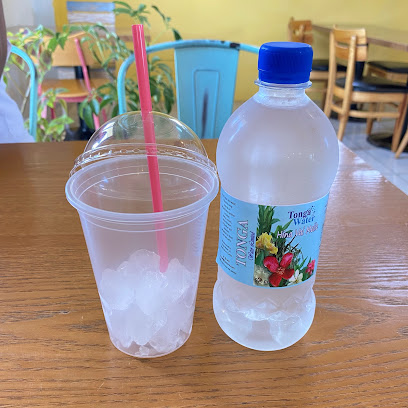
Frangipani - Korean Restaurant/Karaoke
Discover the vibrant flavors of Korea at Frangipani in Nuku'alofa – where delicious food meets lively karaoke fun.
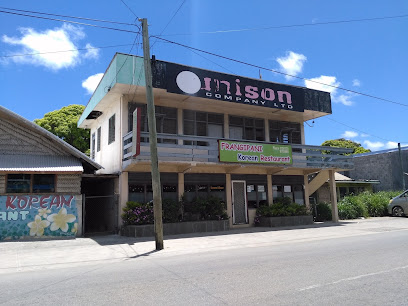
Sabrina's Chicken Vilovilo
Experience authentic Tongan barbecue at Sabrina's Chicken Vilovilo in Nuku'alofa - where every bite tells a delicious story.
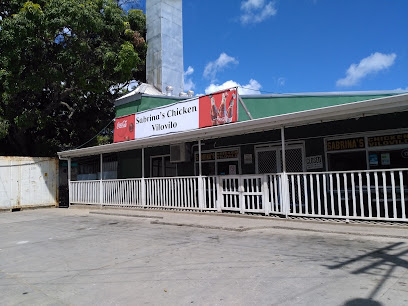
Nauti Ruby's Bar & Restaurant
Discover Nauti Ruby's Bar & Restaurant - where vibrant atmosphere meets delicious cuisine on the stunning waterfront of Nuku'alofa.
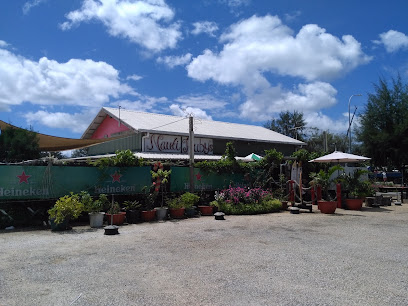
Singapore Restaurant
Savor authentic Singaporean cuisine in Nuku'alofa's vibrant dining scene with delectable dishes and warm hospitality.
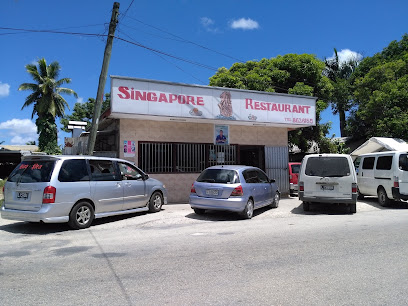
Cottage Breeze Restaurant
Experience authentic Tongan cuisine at Cottage Breeze Restaurant in Nuku'alofa – where every meal is a taste of paradise.
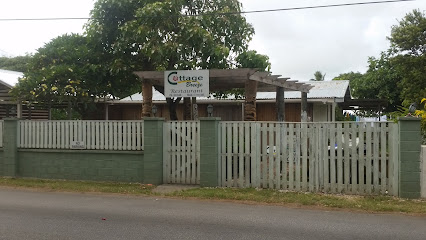
Tropical Taste
Discover authentic Tongan flavors at Tropical Taste in Nuku'alofa – where every dish tells a story of culture and tradition.
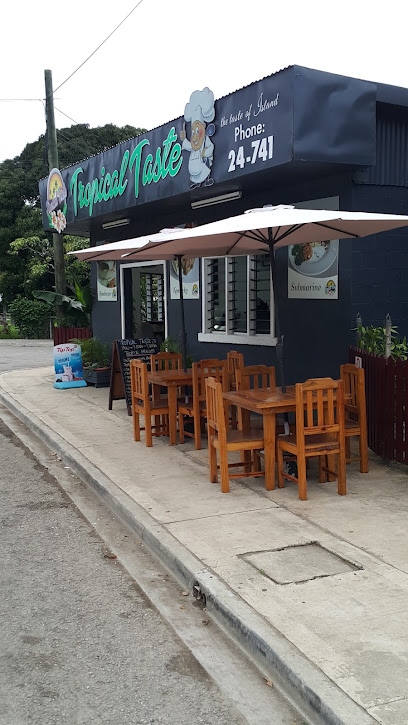
Markets, malls and hidden boutiques
Talamahu Market
Explore Talamahu Market in Nuku'alofa for fresh produce, delicious local dishes, and a taste of Tongan culture.
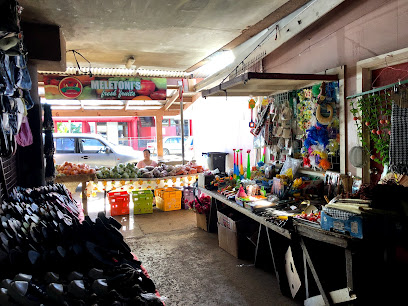
Molisi Supermarket
Explore local flavors and vibrant culture at Molisi Supermarket, your gateway to authentic Tongan groceries and unique culinary experiences.
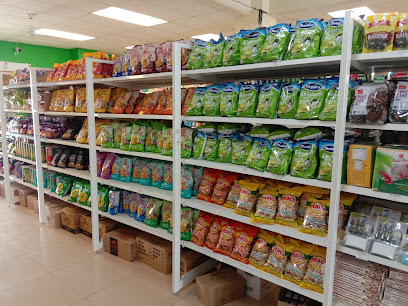
Hiki 'O Tonga
Explore a vibrant shopping experience at Hiki 'O Tonga, the premier mall in Nuku'alofa, where local culture meets international flair.
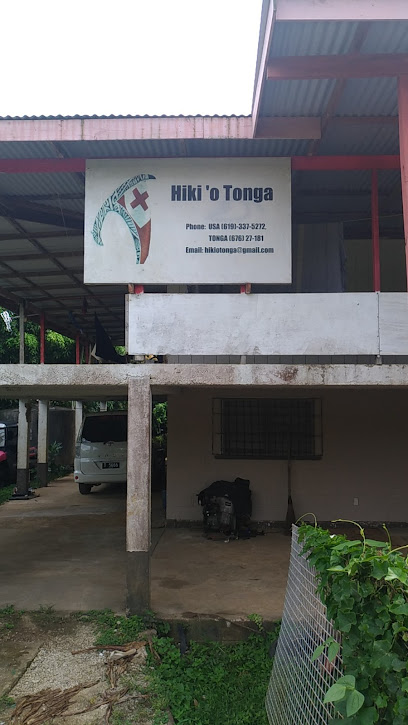
EZ TONGA ONLINE SHOPPING
Explore the flavors and crafts of Tonga with EZ Tonga Online Shopping, your go-to e-commerce service for local goods and authentic Tongan experiences.

Si'i Kae Ola Supermarket
Explore the vibrant culinary landscape of Tonga at Si'i Kae Ola Supermarket, where local flavors and international products meet.
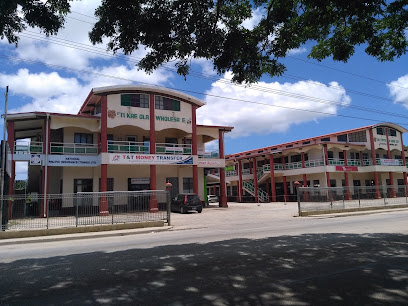
Langafonua Handicraft Centre and Gallery
Explore the vibrant artistry and traditional craftsmanship at the Langafonua Handicraft Centre and Gallery in Nuku'alofa, Tonga.
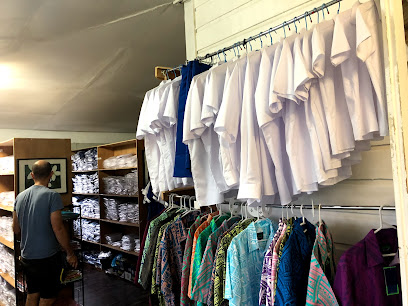
Friendly Island Bookshop
Explore Tongan culture through literature at the Friendly Island Bookshop in Nuku'alofa, a treasure trove for book lovers and cultural enthusiasts.
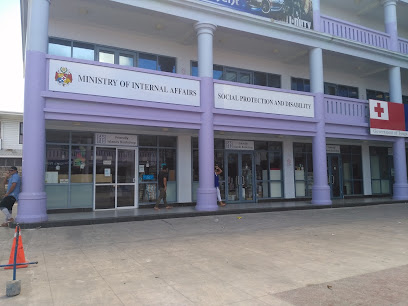
Fakafeta'i Store
Experience authentic Tongan hospitality and quality local goods at Fakafeta'i Store, a charming general store in the heart of Nuku'alofa.
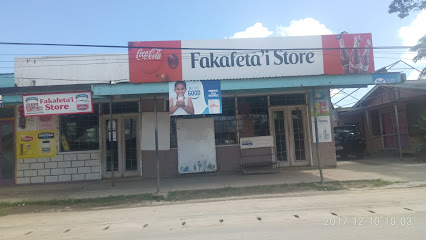
Leiola
Experience the best of Tonga's beer culture at Leiola, a vibrant store in Nuku'alofa offering local and international brews.
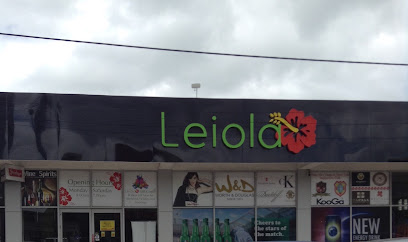
Value City (Tonga) Ltd.
Discover unique second-hand treasures at Value City in Nuku'alofa, where every item tells a story and reflects the charm of Tonga.
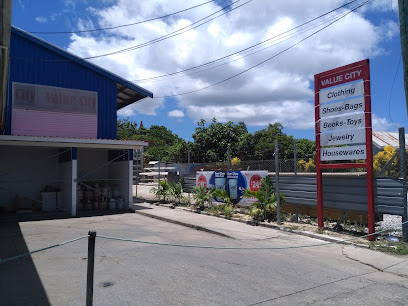
Le-Ata Tonga
Experience the vibrant Tongan culture through unique clothing and accessories at Le-Ata Tonga, Nuku'alofa's charming boutique offering local craftsmanship.
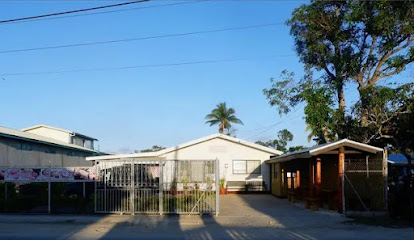
FORTUNE ISLAND SHOPPING CENTER
Discover unique Tongan crafts and local delicacies at Fortune Island Shopping Center, a vibrant retail hub in Nuku'alofa perfect for all tourists.
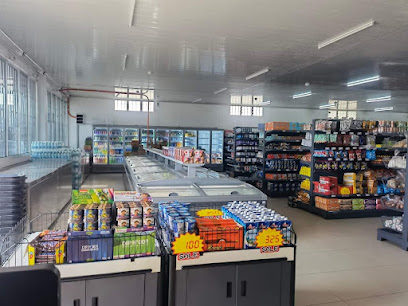
Lion Liquor
Discover a treasure trove of local brews and snacks at Lion Liquor in Nuku'alofa, your ultimate stop for Tongan beverages.
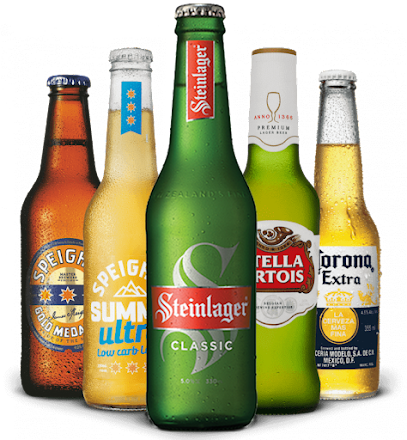
ECOFREINDLY Tonga
Explore sustainable fashion at ECOFRIENDLY Tonga, where local culture meets eco-conscious style in the heart of Kolofo'ou.
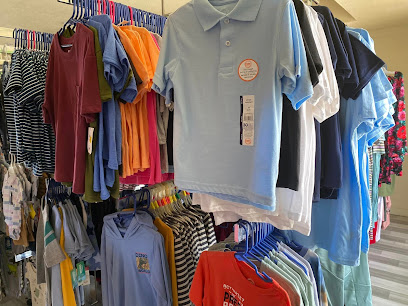
Eiko-San Clothing
Explore unique Tongan-inspired fashion at Eiko-San Clothing in Nuku'alofa, where tradition meets contemporary style.
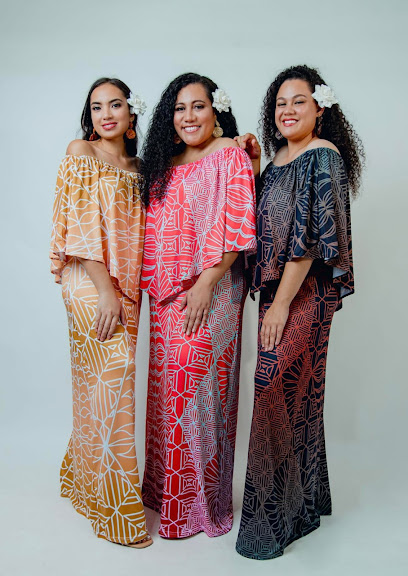
Essential bars & hidden hideouts
Friends Cafe
Discover the flavors of Tonga at Friends Cafe, where local culture meets delightful cuisine in the heart of Nuku'alofa.
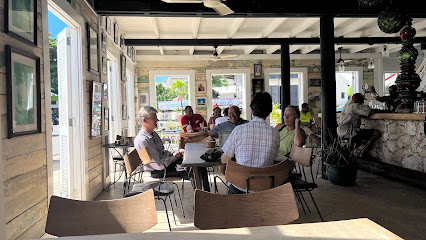
Cafe Escape
Discover the flavors of Tonga at Café Escape, where every sip of coffee and bite of food tells a delicious story.
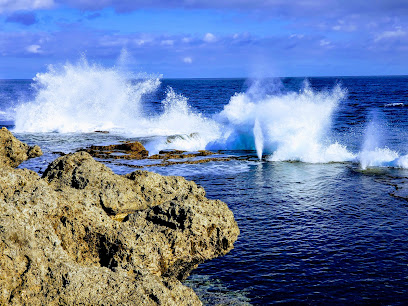
Billfish Bar and Restaurant
Experience the vibrant flavors and friendly atmosphere of Billfish Bar and Restaurant in Nuku'alofa, Tonga.
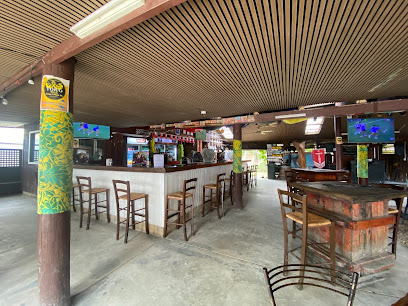
Waterfront Lodge
Discover tranquility and charm at Waterfront Lodge in Nuku'alofa, your perfect getaway in the heart of Tonga's natural beauty.
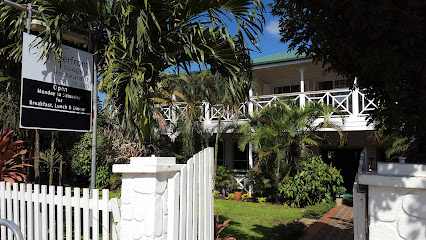
Chef Zero Restaurant
Experience the heart of Tongan cuisine at Chef Zero Restaurant in Nuku'alofa, where every dish is a celebration of flavor and culture.
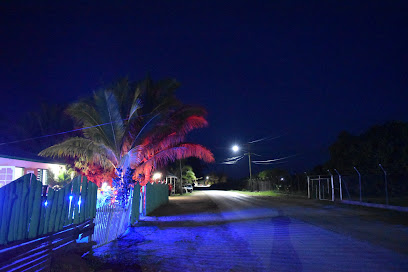
The TOP Restaurant and Lounge
Experience the best of Tongan cuisine at The TOP Restaurant and Lounge in Nuku'alofa, where flavors and stunning views come together.
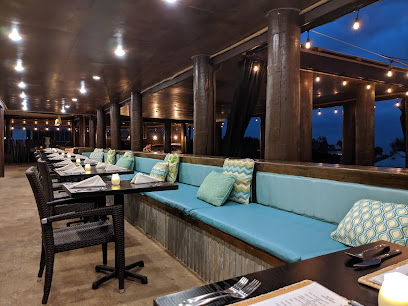
Mum's Cafe Nukualofa
Experience the heart of Tongan cuisine at Mum's Cafe in Nuku'alofa, where fresh ingredients and warm hospitality await every guest.
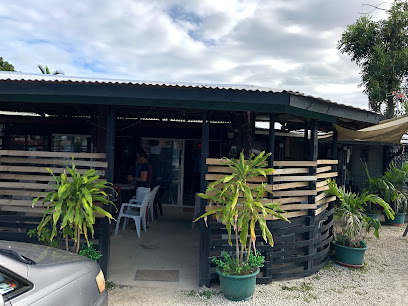
Lunarossa Deli
Discover the vibrant flavors of Tonga at Lunarossa Deli, a must-visit takeout restaurant in Nuku'alofa offering delicious meals for every palate.
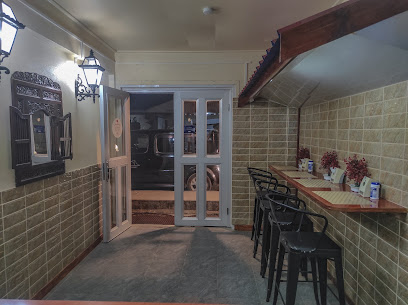
Ngutulei Bar & Restaurant
Experience the authentic taste of Tonga at Ngutulei Bar & Restaurant, where local flavors and warm hospitality come together.
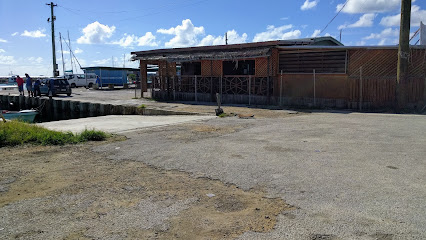
Young’s Kitchen
Discover the authentic taste of Tonga at Young's Kitchen, where local flavors and warm hospitality create a memorable dining experience.
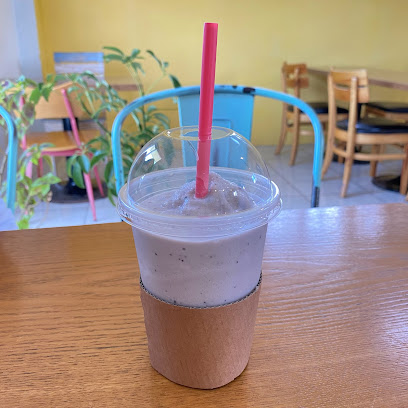
Nauti Ruby's Bar & Restaurant
Experience the flavors of Tonga at Nauti Ruby's Bar & Restaurant, where stunning ocean views meet vibrant local culture.
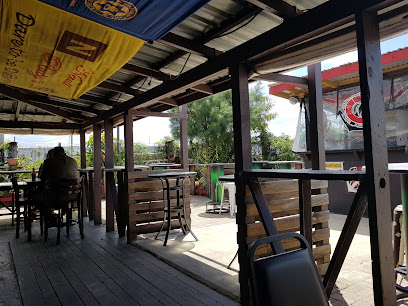
Sabrina's Chicken Vilovilo
Experience authentic Tongan barbecue at Sabrina's Chicken Vilovilo, where fresh flavors and warm hospitality await every visitor.
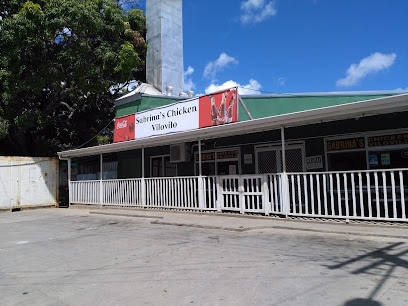
Reload Bar
Experience the energetic vibe of Reload Bar in Nuku'alofa, where great drinks and lively ambiance create unforgettable nights.
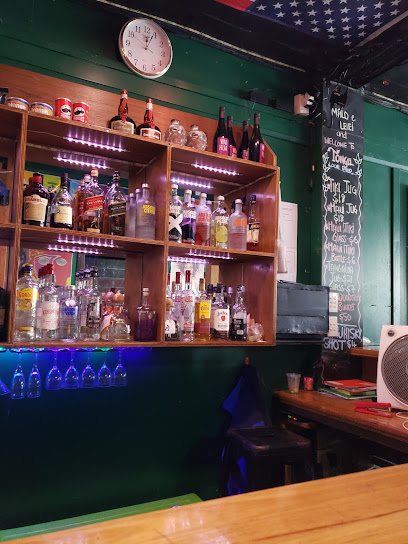
Tropical Taste
Experience authentic Tongan flavors at Tropical Taste, a culinary gem in Nuku'alofa, perfect for food lovers and travelers alike.
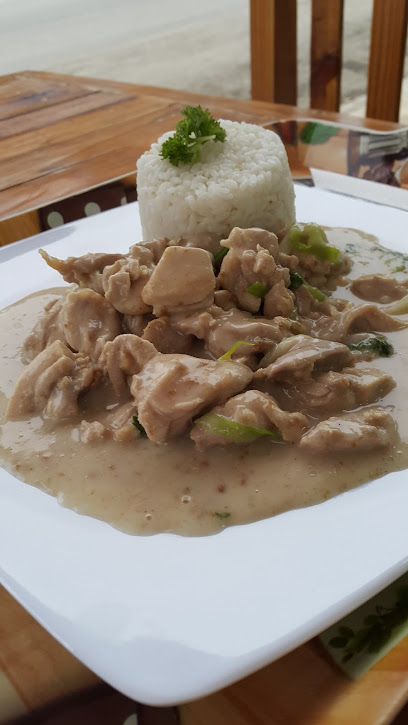
Local Phrases about Tongatapu Coastline
-
- HelloMalo e lelei
[mah-loh eh leh-leh] - GoodbyeOfa atu
[oh-fah ah-too] - Yes'Io
[ee-oh] - NoʻIkai
[ee-kai] - Please/You're welcomeFakaʻilonga
[fah-kah-ee-loh-ngah] - Thank youMālō
[mah-loh] - Excuse me/SorryTulou
[too-loh] - How are you?ʻOku ʻo e haʻa?
[oh-koo oh eh hah-ah] - Fine. And you?Fefe. Pe ʻo e haʻa?
[feh-feh. peh oh eh hah-ah] - Do you speak English?Te u fai ha angiliasi?
[teh oo fai hah ahn-gee-lee-ah-see] - I don't understandʻIkai haʻu mahino
[ee-kai hah-oo mah-hee-noh]
- HelloMalo e lelei
-
- I'd like to see the menu, pleaseʻOku ou fiemaʻu ke ʻilo ha meini, fakaʻilonga
[oh-koo oh fee-eh-mah-oo keh ee-loh hah meh-ee-nee fah-kah-ee-loh-ngah] - I don't eat meatʻIkai au ʻai kia
[ee-kai ow ah-ee kee-ah] - Cheers!Mālo!
[mah-loh] - I would like to pay, pleaseʻOku ou fiemaʻu ke totongi, fakaʻilonga
[oh-koo oh fee-eh-mah-oo keh toh-toh-nee fah-kah-ee-loh-ngah]
- I'd like to see the menu, pleaseʻOku ou fiemaʻu ke ʻilo ha meini, fakaʻilonga
-
- Help!Fesoasoani!
[feh-soh-ah-soh-ah-nee] - Go away!Foki atu!
[foh-kee ah-too] - Call the Police!Fonua mai ki he polisi!
[foh-noo-ah mah-ee kee heh poh-lee-see] - Call a doctor!Fonua mai ki he toktā!
[foh-noo-ah mah-ee kee heh toh-kah] - I'm lostNaʻa malohi
[nah-ah mah-loh-hee] - I'm illʻOku ou ʻinasi
[oh-koo oh ee-nah-see]
- Help!Fesoasoani!
-
- I'd like to buy...ʻOku ou fiemaʻu ke fakatau...
[oh-koo oh fee-eh-mah-oo keh fah-kah-tow] - I'm just lookingʻOku ou taʻoto
[oh-koo oh tah-oh-toh] - How much is it?Fēfē ha kina?
[feh-feh hah kee-nah] - That's too expensiveʻOku lava haʻilonga
[oh-koo lah-vah hah-ee-loh-ngah] - Can you lower the price?Koe haʻilonga ha fakatau?
[koh-eh hah-ee-loh-ngah hah fah-kah-tow]
- I'd like to buy...ʻOku ou fiemaʻu ke fakatau...
-
- What time is it?Ko ha hua?
[koh hah hoo-ah] - It's one o'clockKo ha hua taha
[koh hah hoo-ah tah-hah] - Half past (10)ʻUluaki hono hongofulu
[oo-loo-ah-kee hoh-noh hoh-ngoh-foo-loo] - MorningFōtunga
[foh-too-ngah] - AfternoonʻApongipongi
[ah-poh-nghee-poh-nghee] - EveningPō
[poh] - YesterdayʻUa
[oo-ah] - TodayʻAho
[ah-hoh] - TomorrowʻApongipongi
[ah-poh-nghee-poh-nghee] - 1Taha
[tah-hah] - 2Ua
[oo-ah] - 3Tolu
[toh-loo] - 4Fā
[fah] - 5Nima
[nee-mah] - 6Ono
[oh-noh] - 7Fitu
[fee-too] - 8Valu
[vah-loo] - 9Hiva
[hee-vah] - 10Hongofulu
[hoh-ngoh-foo-loo]
- What time is it?Ko ha hua?
-
- Where's a/the...?Ko fe hano...
[koh feh hah-noh] - What's the address?Ko fe e tuunga?
[koh feh eh too-oo-ngah] - Can you show me (on the map)?Koe lahi fakamāpu mai ki au?
[koh-eh lah-hee fah-kah-mah-poo mah-ee kee ow] - When's the next (bus)?Ko e hua ʻe taha?
[koh eh hoo-ah eh tah-hah] - A ticket (to ....)ʻOtumotu (ki ...)
[oh-too-moh-too kee]
- Where's a/the...?Ko fe hano...
History of Tongatapu Coastline
-
The Tongatapu Coastline is believed to have been first settled by the Lapita people around 2850-2650 years ago. These early Polynesian settlers brought with them intricate pottery, advanced sailing techniques, and a complex society that laid the foundation for the future Kingdom of Tonga.
-
During the 10th century, the Tongatapu Coastline became the heart of the Tu'i Tonga Empire, one of the most powerful and influential Polynesian kingdoms. The empire extended its reach across the Pacific Ocean, establishing a network of trade and cultural exchange that connected islands from Samoa to Fiji.
-
In 1616, Dutch explorers Willem Schouten and Jacob Le Maire became the first Europeans to sight the Tongatapu Coastline. Later, in 1773, British explorer Captain James Cook visited the island and named it the 'Friendly Islands' due to the warm welcome he received from the local people. These encounters marked the beginning of increased European interest in the region.
-
The arrival of Methodist missionaries in the early 19th century brought significant changes to the Tongatapu Coastline. In 1826, Reverend John Thomas established the first mission station, and by 1831, King George Tupou I had converted to Christianity. This conversion led to the widespread adoption of the new faith and profound cultural transformations.
-
In 1875, King George Tupou I declared the establishment of the modern Kingdom of Tonga. The new constitution centralized power under the monarchy and formalized the legal and political structures of the nation. The Tongatapu Coastline, as the heart of the kingdom, played a crucial role in this transition toward modern statehood.
-
During World War II, the Tongatapu Coastline became strategically important. Tonga supported the Allied forces, and the Tongan Defense Force was established in 1939. The coastline saw increased military activity, including the construction of an airfield and naval facilities by the United States, which played a crucial role in the Pacific theater.
-
Tonga regained full independence from British protection in 1970. The Tongatapu Coastline has since experienced significant development, balancing modernization with the preservation of its rich cultural heritage. Today, it remains a vibrant area where history and contemporary life coexist, attracting visitors from around the world.
Tongatapu Coastline Essentials
-
Tongatapu is the main island of the Kingdom of Tonga. Fuaʻamotu International Airport (TBU) is the principal gateway to Tongatapu and is located about 21 kilometers from the capital, Nukuʻalofa. Direct flights are available from New Zealand, Australia, and Fiji. From the airport, you can take a taxi or arrange for a shuttle service to your accommodation. If you are arriving by sea, the Nukuʻalofa Port serves as the main maritime entry point.
-
Transportation on Tongatapu includes taxis, rental cars, and local buses. Taxis are plentiful and can be hailed on the street or arranged through your hotel. Rental cars are available from several agencies, but driving is on the left side of the road, and an International Driving Permit is required. Local buses are an affordable option and cover most areas of the island, though they don't run on a fixed schedule. Biking is also a popular way to explore the coastline.
-
The official currency of Tonga is the Tongan Paʻanga (TOP). Credit cards are accepted in most hotels, restaurants, and larger shops, but it's advisable to carry cash for smaller establishments and local markets. ATMs are available in Nukuʻalofa, but may be scarce in more remote areas. Currency exchange services are available at the airport and in major towns.
-
Tongatapu is generally a safe destination for tourists. However, it is advisable to take standard precautions such as not leaving valuables unattended and avoiding poorly lit areas at night. Nukuʻalofa and its surrounding areas are typically safe, but like any travel destination, it's important to stay vigilant. Petty theft can occur, especially in crowded places, so keep an eye on your belongings.
-
In case of an emergency, dial 911 for immediate assistance. Fuaʻamotu International Airport has basic medical facilities, and there are hospitals and clinics in Nukuʻalofa. It's highly recommended to have travel insurance that covers medical emergencies. Pharmacies are available in town for over-the-counter medications. For police assistance, visit the nearest police station in Nukuʻalofa.
-
Fashion: Do wear modest clothing, especially when visiting villages and religious sites. Avoid wearing revealing clothing. Religion: Do respect local customs and traditions. Always remove your shoes before entering homes and churches. Public Transport: Do be respectful and give up your seat to elderly passengers. Don't eat or drink on public transport. Greetings: Do greet people with a friendly 'Malo e lelei' (Hello). A handshake is common in formal settings. Eating & Drinking: Do try local Tongan dishes and accept food offerings graciously. Don't refuse hospitality, as it is considered impolite.
-
To experience Tongatapu like a local, visit the local markets such as Talamahu Market in Nukuʻalofa where you can buy fresh produce and traditional Tongan crafts. Engage with the locals; Tongans are known for their friendliness and hospitality. Don’t miss the cultural shows and traditional feasts (ʻumu) that are often held in resorts and community halls. For a unique experience, visit the Mapu'a 'a Vaea Blowholes and explore the ancient Ha'amonga 'a Maui Trilithon.
Trending Landmarks in Tongatapu Coastline
Nearby Cities to Tongatapu Coastline
-
Things To Do in Nuku'alofa
-
Things To Do in Pangai
-
Things To Do in Foa
-
Things To Do in Vava'u
-
Things To Do in Neiafu
-
Things To Do in Kolovai
-
Things To Do in Ha'ano
-
Things To Do in Eua
-
Things To Do in Levuka
-
Things To Do in Nausori
-
Things To Do in Suva
-
Things To Do in Rakiraki
-
Things To Do in Savusavu
-
Things To Do in Sigatoka
-
Things To Do in Labasa










